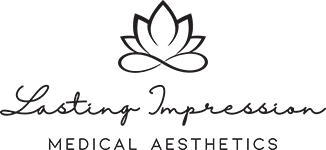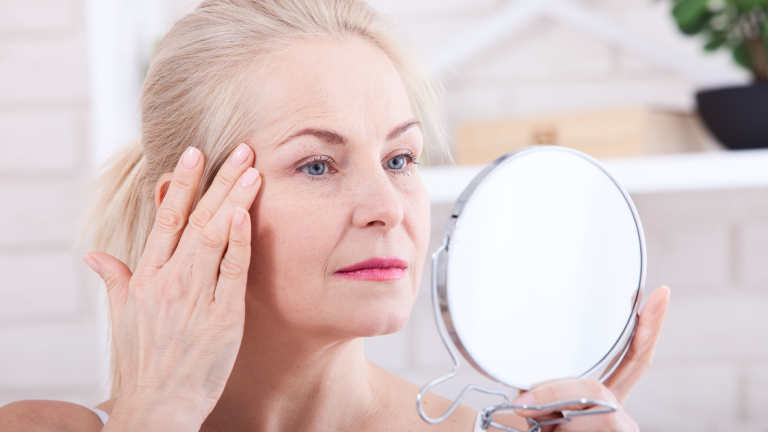Collagen is often hailed as a miracle protein for youthful skin, strong hair, and overall health. But what exactly is collagen, and why do people use it? Understanding the causes and effects of collagen decrease is necessary for everybody hoping to keep their youthful appearance and overall health.This blog article will discuss what collagen is, how its decrease impacts your skin and health, and what you can do to enhance collagen production.
Let Bergen County Sculptra help you achieve your beauty goals with a customized treatment plan. We are committed to meeting your needs and delivering top-notch care. Schedule your consultation today! CALL US at (201) 228-3200.
What is Collagen, and Why Do People Use It?
Collagen is the most abundant protein in the human body, making up about 30% of its total protein content. It is critical for constructing skin, hair, nails, bones, and connective tissues. Essentially, collagen acts as the scaffolding that keeps our bodies intact.
People use collagen supplements to support skin elasticity, reduce signs of aging, and improve joint health. The body naturally produces less collagen as it matures. , resulting in joint pain, sagging skin, and wrinkles . Individuals aim to replenish these declining levels by supplementing with collagen, promoting a more youthful appearance and better overall health.
How It Impacts Your Skin and What You Can Do About It
Collagen is vital for maintaining your skin’s firmness, elasticity, and hydration. When collagen levels are high, your skin looks smooth, plump, and youthful. However, you may notice fine lines, wrinkles, and sagging skin as collagen production decreases.
To counteract the effects of collagen decrease,Adopting an all-encompassing strategy that incorporates a healthy diet, skincare routine, and lifestyle habits:
Diet: Consuming meals high in C and E vitamins , such as citrus fruits, berries, and leafy greens, can help boost collagen production. Additionally, protein-rich foods like fish, chicken, and eggs give the amino acids required for the formation of collagen.
Skincare Routine: Incorporating collagen-boosting products like retinoids, Hyaluronic acid and peptides can encourage the formation of collagen and improve skin texture.
Lifestyle Habits: Avoiding excessive sun exposure, quitting smoking, and managing stress are crucial for maintaining collagen levels and overall skin health.
How Aging Affects Collagen Levels
As we age, collagen production naturally declines. Starting in the mid-20s, the body produces approximately 1% less collagen yearly. By the time we reach our 40s and 50s, collagen levels have significantly diminished, leading to noticeable changes in our skin and overall health.
The decrease in collagen is accelerated by factors such as UV radiation, pollution, smoking, and poor dietary habits. These elements play a part in the degradation of collagen fibers, resulting in skin elasticity, firmness, and moisture loss.
Collagen Decrease: What You Need to Know
The primary cause of is the aging process itself. collagen decrease, but environmental and lifestyle factors also play a significant role. When collagen levels drop, the skin loses its capacity to hold moisture and suppleness, resulting in wrinkles, fine lines, and a dull complexion.
In addition to affecting the skin, a decrease in collagen can impact joint health, leading to stiffness and discomfort. A vital component of cartilage is collagen, which cushions the joints. When collagen levels decrease, the risk of joint pain and osteoarthritis increases.
Enhancing Collagen Production for Youthful Skin
To enhance collagen production and maintain youthful skin, consider the following strategies:
1. Topical Treatments: Skincare products containing retinoids, Antioxidants and peptides can help promote the formation of collagen and protect against collagen breakdown.
2. Healthy Diet: Collagen-rich foods like bone broth, fish, and chicken can provide the building blocks for collagen synthesis. Furthermore, eating foods rich in zinc, vitamin C, and copper supports collagen production.
3. Collagen Supplements: High-quality collagen supplements can help replenish declining collagen levels.Seek for supplements with hydrolyzed collagen peptides; they have been shown to be more accessible for the body to absorb and utilize.
4. Hydration: Drinking plenty of water and using hydrating skincare products can help maintain the skin’s moisture barrier and prevent collagen degradation.
5. Protect Your Skin: Use broad-spectrum sunscreen help shield your skin from damaging UV radiation, which can accelerate collagen breakdown.
Choosing Effective Collagen Supplements
Not all collagen supplements are created equal. When choosing a collagen supplement, look for products that contain hydrolyzed collagen peptides, as they are broken into more absorbable, smaller molecules. Additionally, consider supplements that include other skin-supporting ingredients like hyaluronic acid, vitamin C, and biotin.
Speaking with a dermatologist or other medical expert can help you determine the correct type of collagen supplement for your needs. Choosing supplements from reputable brands that provide transparent ingredient lists and third-party testing is also essential.
Conclusion
Understanding the causes and effects of collagen decrease is necessary to preserve healthy skin and a young appearance. Naturally, collagen synthesis decreases with aging, which might result in changes in our skin’s appearance and joint health.Taking a holistic approach that incorporates a nutritious food, , skincare routine, and collagen supplementation can enhance collagen production and enjoy the benefits of youthful, radiant skin.
Remember, maintaining collagen levels is not just about looking good—it’s about feeling good, too. You’re making a long-term investment in your well-being and health by supporting collagen production.





